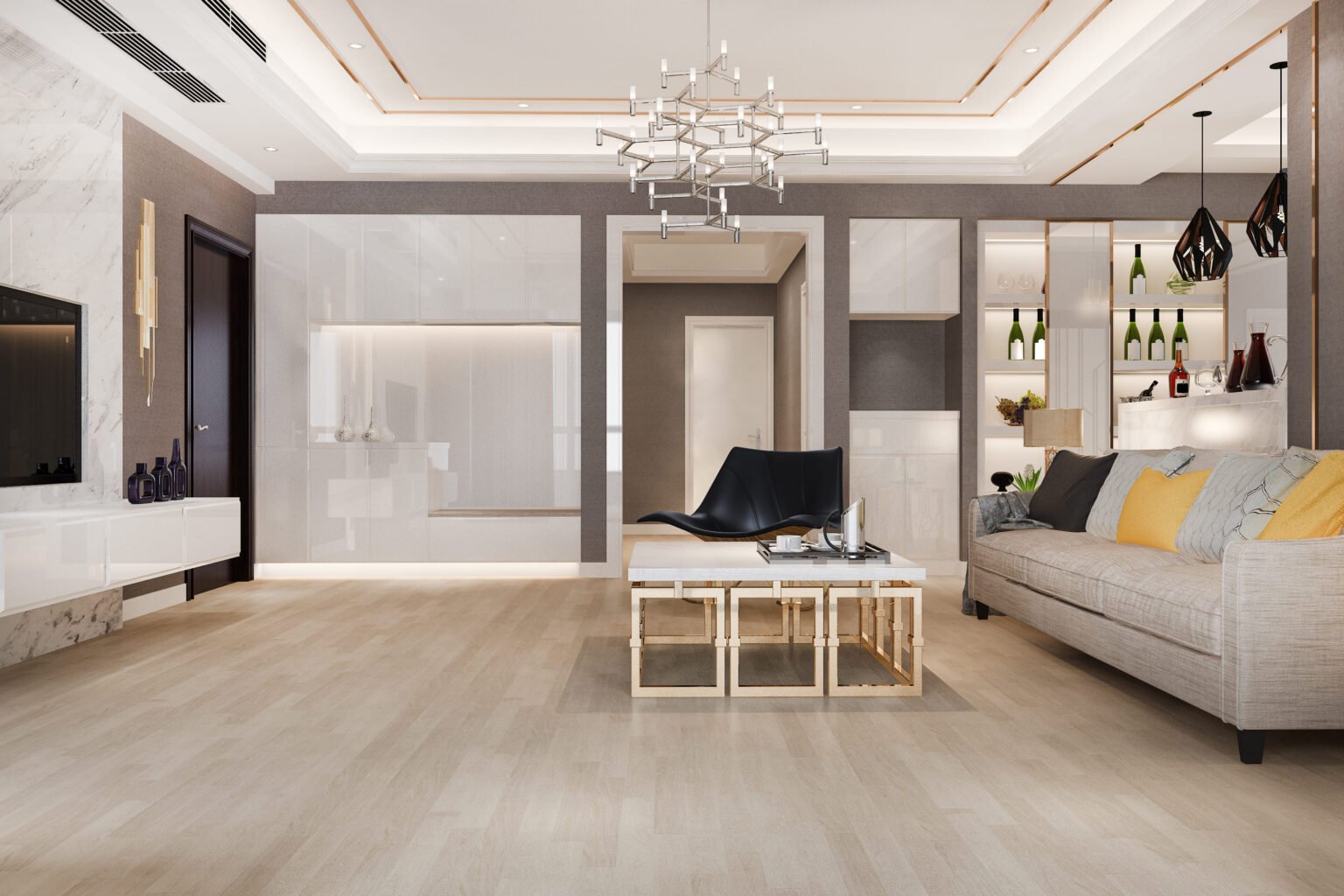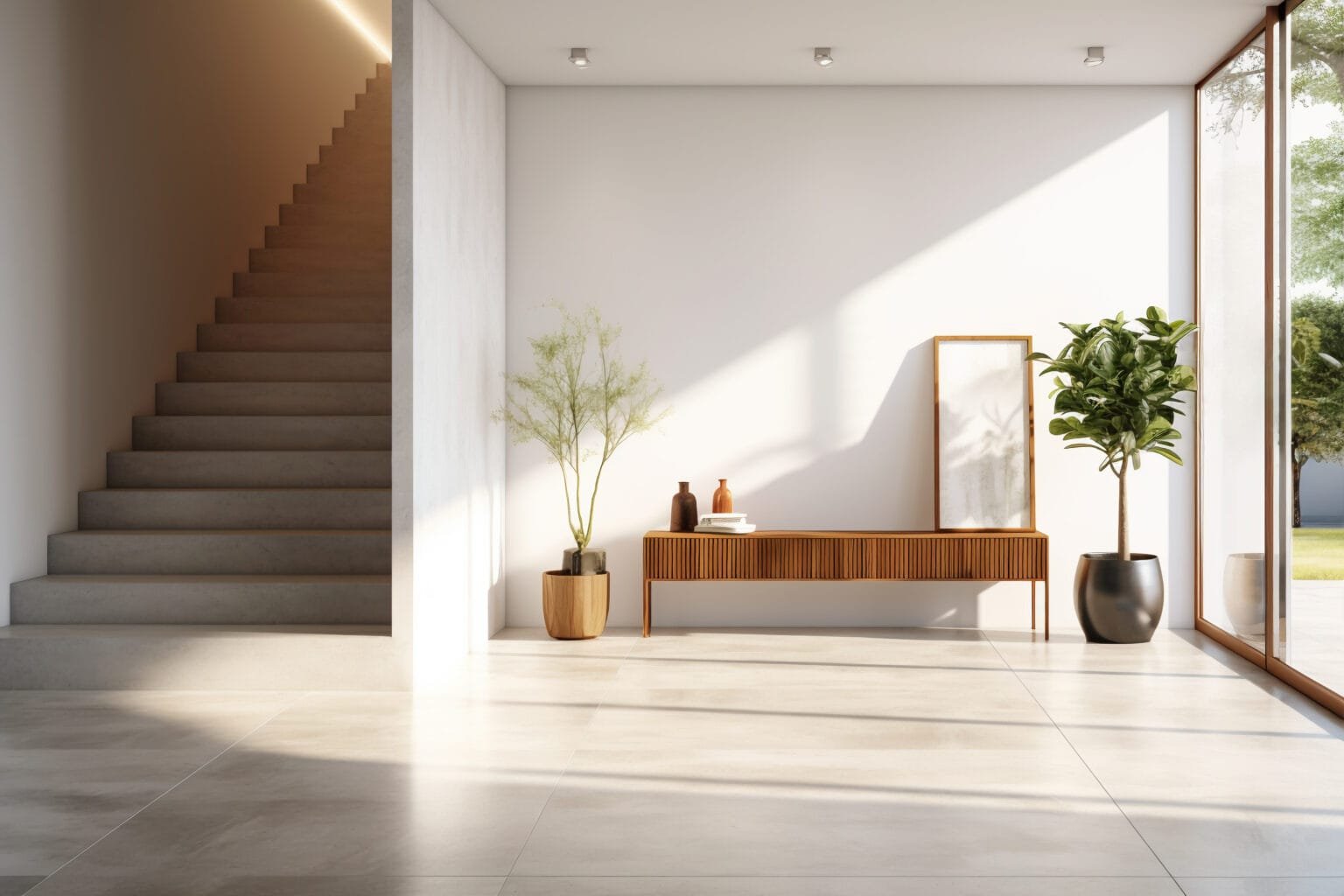Choosing the right flooring for your remodel can feel overwhelming with so many options on the market. Two of the most popular choices are hardwood and laminate flooring—both have their pros and cons, depending on your needs, style, and budget. To help you make the best decision, we’ve answered the most frequently asked questions about hardwood and laminate flooring. Let’s dive in!
FAQ 1: What’s the Difference Between Hardwood and Laminate Flooring?
Hardwood: Made from 100% natural wood, either as solid planks or engineered wood with a top layer of hardwood veneer. Learn more about timeless hardwood flooring options.
Laminate: A synthetic product made from multiple layers, including a high-resolution image of wood topped with a protective coating. Explore durable laminate flooring choices.
Vern’s Take: “Hardwood is all about timeless beauty and durability, while laminate offers a budget-friendly alternative with plenty of style options.”
FAQ 2: Which Is More Durable?
Hardwood: Prone to scratches and dents but can be refinished multiple times to restore its beauty. Better for low-traffic areas or homes without pets.
Laminate: Scratch-resistant and more durable against wear and tear, making it ideal for homes with kids or pets. However, it cannot be refinished once damaged.
Vern’s Tip: “If you want something that can handle active lifestyles, laminate is a great choice. For long-term investment, hardwood wins with its refinishing capabilities.”
FAQ 3: Which Flooring Option Is More Affordable?
Hardwood: Higher upfront cost, ranging from $6 to $12 per square foot for materials, plus installation fees. For elegant options, check out custom cabinetry.
Laminate: More budget-friendly, typically $2 to $5 per square foot, and easier to install, reducing labor costs. Compare costs with our expert guide to laminate flooring.
Vern’s Take: “If budget is a priority, laminate is your go-to. But if you can afford the initial investment, hardwood adds long-term value to your home.”


FAQ 4: How Do They Handle Moisture?
Hardwood: Susceptible to warping and swelling in high-moisture areas like bathrooms or basements.
Laminate: More moisture-resistant but still not fully waterproof. Water-resistant options are available for kitchens and basements. Consider waterproof vinyl plank flooring for such areas.
Vern’s Tip: “For bathrooms and basements, avoid hardwood unless it’s engineered wood specifically designed for these areas. Laminate with a water-resistant layer is a safer bet.”
FAQ 5: Which Option Is Easier to Maintain?
Hardwood: Requires regular maintenance, including sweeping, occasional polishing, and refinishing every 7-10 years.
Laminate: Low-maintenance; simply vacuum or mop with a damp cloth. No polishing or refinishing required.
Vern’s Take: “If low maintenance is important, laminate is the clear winner. Hardwood is higher maintenance but worth it for its beauty and longevity.”
FAQ 6: How Do They Compare in Style and Appearance?
Hardwood: Offers a natural, warm, and luxurious look that’s unique to each plank due to wood grain variations.
Laminate: Advances in technology mean laminate now mimics the look of hardwood convincingly, but it lacks the depth and authenticity of real wood. See premium options in our transform your home with durable flooring blog.
Vern’s Tip: “For an authentic, high-end look, nothing beats hardwood. Laminate is great for achieving style on a budget.”




FAQ 7: Which Flooring Option Adds More Value to My Home?
Hardwood: Known to increase home value significantly, as it’s a desirable feature for buyers.
Laminate: Adds some value, but it doesn’t have the same premium appeal as hardwood.
Vern’s Take: “Hardwood is the better choice if you’re looking to boost resale value, but laminate still offers excellent return on investment for budget-conscious renovations.”
FAQ 8: Which Is Better for Eco-Friendly Homes?
Hardwood: Can be eco-friendly if sourced sustainably. Look for FSC-certified wood to ensure responsible forestry practices.
Laminate: Contains synthetic materials and may not be recyclable, but some brands offer eco-friendly options with recycled content.
Vern’s Tip: “For sustainability, opt for hardwood from reputable sources or choose laminate brands committed to green manufacturing.”
FAQ 9: Can Both Be Installed as a DIY Project?
Hardwood: Solid hardwood typically requires professional installation, while engineered wood offers a click-and-lock system that’s more DIY-friendly.
Laminate: Designed for easy installation with click-and-lock technology, making it perfect for DIYers. Try out the best tools for flooring remodeling.
Vern’s Take: “Laminate is the go-to option for DIYers. Engineered hardwood is a middle ground if you want real wood but prefer to save on labor.”
Don’t wait!
Reach out to us today to schedule your consultation and discover how we can transform your floors into a stunning foundation for your home!
7
FAQ 10: How Long Does Each Flooring Type Last?
Hardwood: With proper care, hardwood can last 50+ years, making it a long-term investment.
Laminate: Typically lasts 10-20 years, depending on the quality and level of wear. Explore hardwood flooring deals for lasting elegance.
Vern’s Tip: “For longevity, hardwood is unbeatable. Laminate is a great short-term solution for stylish, affordable updates.”
Final Thoughts: Which Flooring Option Is Right for You?
Choosing between hardwood and laminate depends on your priorities:
- Choose Hardwood: If you value authenticity, long-term durability, and adding resale value to your home.
- Choose Laminate: If you need a budget-friendly, low-maintenance solution that still delivers on style and durability.
No matter your choice, both options offer unique benefits to enhance your home. For expert flooring solutions, explore RIVA Spain or Cortona Maxx.
